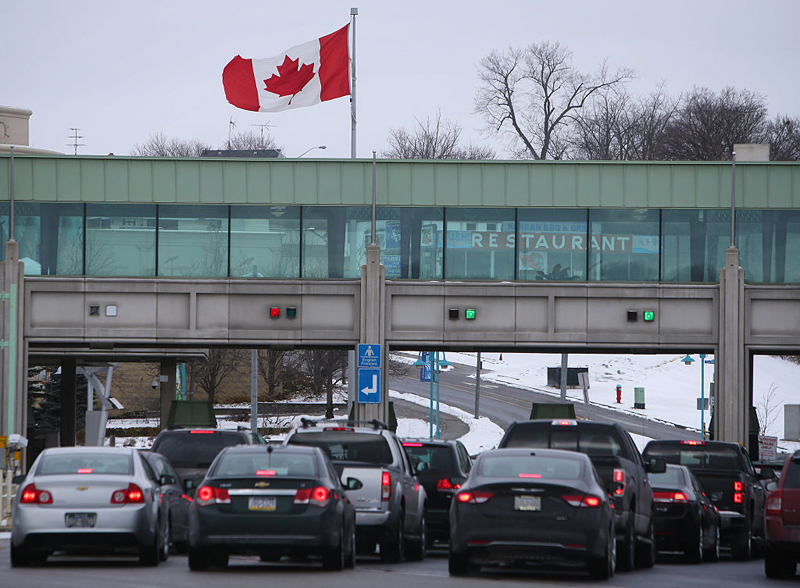Changes to immigration rules quietly announced a few days after the U.S. election will make it easier for Americans to come to work in Canada, and easier for them to move toward citizenship once they’re here, immigration lawyers explain.

Would-be immigrants (who aren’t refugees or family members) have to qualify for a given number of points to get into a pool of potential immigrants. The points system, which grades potential immigrants, looks at a number of factors: work experience, age, education and official language fluency. The best-qualified applicants in the pool are invited to apply for permanent residence, which comes with the right to work in Canada and can lead to citizenship.
“The way we allocate points favours certain nationalities more than others,” explains Toronto-based immigration lawyer Guidy Mamann. “If you’re from the United States, you’re going to be a bit higher in the pool because you speak English. If you’re an American, you’re more likely to have a degree than if you’re from somewhere else.”
“Naturally, Americans will float a bit higher in the pool, but not by virtue of their passport, just because of their demographics.”
(The system also favours the young, explains Bruce Allen, who practices immigration law in Cleveland, Ohio as part of a cross-border law practice. “They say it’s points for age, but really it’s points for youth. Once you turn 31, you rapidly start losing points for age.”)
READ MORE: Here’s how Americans looking to escape Trump can immigrate to Canada
Among the recent changes:
Applicants can now earn points by working in Canada, which is easier for Americans to do because of NAFTA
Americans (and Mexicans) who are in this list of occupations have an automatic right to work in Canada. Working in Canada on a NAFTA work permit didn’t move someone closer to citizenship before, but now it does, Mamann explains.
“If you’re an American, and you’re working in Canada under a work permit for a year, you can now claim 50 additional points than you could have before. That’s going to make you float in the pool higher, and significantly increase your ability to immigrate to Canada.”
READ MORE: Some U.S. liberals walk the walk: immigration to Canada doubled after Bush’s 2004 re-election
The number of invitations to apply for permanent residency is going up
In principle, people of any nationality can be invited to apply for permanent residency. But the points that help applicants get into the pool, and rise to the top, are within easier reach for Americans.
“They were doing 750 invitations every two weeks – now that number is up to 2,000 weekly,” Mamann says. “That’s a dramatic increase, so obviously more Americans will be able to come in, but so will everybody else.”
Already having a job offer becomes much less important
“What happened last Thursday, kind of quietly in the afternoon, is that they reduced the number of points that would be available for a current job offer in Canada from 600 all the way down to 50,” Allen says.
“It’s an enormous change, because it makes it much more competitive for persons who score well on the other factors, especially language and education. Now, these Americans are much more competitive.”
WATCH: Canadian immigration lawyer Raj Sharma joins Global Calgary to talk about what a Donald Trump presidency means for immigration into Canada.

Since the 1950s, U.S. immigration to Canada has been driven to a large extent by political events south of the border. American immigration spiked dramatically during the Vietnam War, falling equally dramatically after draft inductions ended in 1973. It doubled in the years after 9/11 and the U.S. invasion of Iraq in 2004.
Early signs are that Donald Trump’s presidential election victory may make it spike again.
On U.S. election night last week, overwhelming Web traffic crashed the immigration department’s Web site. Over half the traffic on the site was from U.S. Web addresses at the point it crashed, officials later said.
READ: Blame America: Huge spike in US web traffic crashed Canada’s immigration site election night
The reaction to the election has been “unbelievable, unprecedented, surprising,” Mamann says.
The aftermath of every U.S. election brings a few Americans into Mamann’s practice, but the situation this time is “completely different,” he says.
“Enough people feel so strongly about what’s happened this past week that they’re retaining us to actually do the work, and in numbers that we would never have contemplated. They want to disassociate from the country of their nationality. It’s tragic.”
Americans getting legal advice about immigrating to Canada are well-educated, says lawyer Dan Mendelbaum, who works in Mamann’s practice.
“These are people who tend to have multiple degrees, they’re well-established in the United States. One common thread that I’ve noticed is that a lot of them tend to be minorities, in one way or another.”



Comments